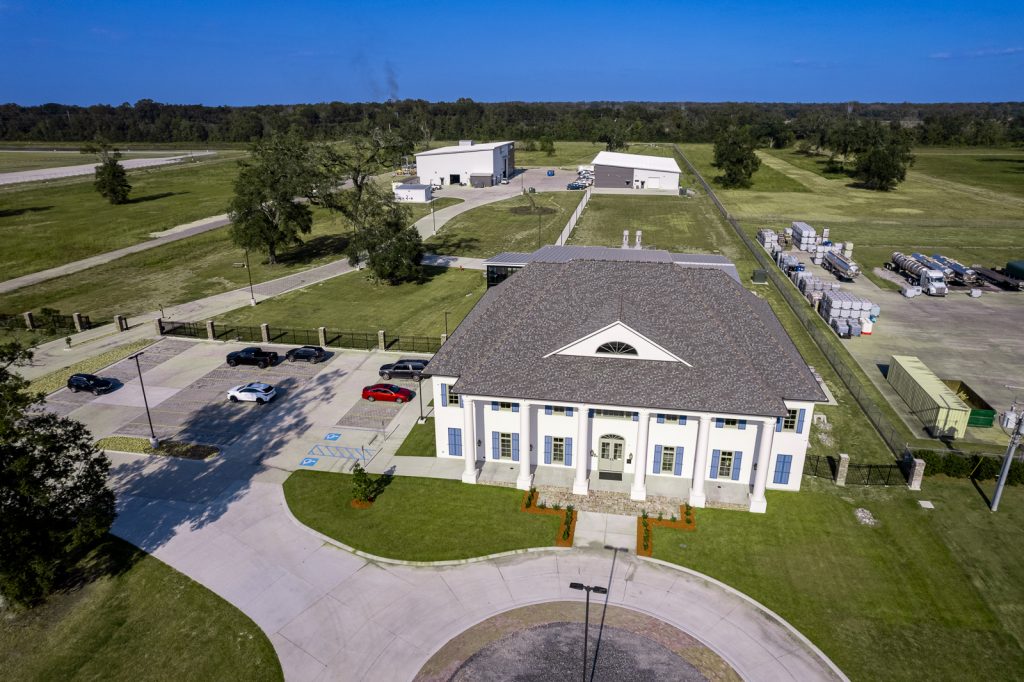What Are the Key Features of Industrial Roofing?
What Are the Key Features of Industrial Roofing?
Industrial roofing is a critical part of keeping your operations running smoothly. Our team at Coleman Roofing and Construction has been helping businesses like yours find the best roofing systems for over 40 years. We understand the challenges industrial facilities face and know how important it is to have a roof you can depend on.

Let’s break down what makes an industrial roof effective. From different roof types to must-have features and important considerations, here’s everything you need to know to make the right choice for your facility.
Industrial Roof Types
Industrial buildings often require specialized roofing services tailored to their operational needs. Here’s a breakdown of the most common types of industrial roofing systems we work with:
1. Metal Roofing
Metal roofing is a popular choice for industrial facilities because of its strength, longevity and energy efficiency. Available in materials like aluminum, steel and zinc, these roofs can withstand harsh weather conditions and require minimal maintenance. Plus, their reflective surfaces can help reduce cooling costs.
2. Modified Bitumen (Mod Bit)
Modified bitumen roofs are composed of asphalt and reinforced materials, making them durable and resistant to extreme weather. These systems work well for flat or low-slope roofs, and you can apply them using torch-down, hot-mopped or self-adhering methods.
3. Built-Up Roofing (BUR)
BUR systems consist of multiple layers of bitumen and reinforcing fabrics, topped with gravel or a mineral surface. Known for their durability and waterproofing capabilities, BUR systems are a tried-and-true option for industrial applications with heavy foot traffic or harsh weather exposure.
4. TPO Roofing
Thermoplastic Polyolefin (TPO) is a single-ply roofing membrane that offers excellent resistance to UV rays, chemical exposure and punctures. Its white reflective surface also helps improve energy efficiency, making it a favorite for environmentally conscious facilities.
5. EPDM Roofing
Ethylene Propylene Diene Monomer (EPDM) is a synthetic rubber roofing membrane known for its flexibility and weather resistance. Ideal for flat or low-slope roofs, EPDM systems perform well in both hot and cold climates.
6. PVC Roofing
Polyvinyl Chloride (PVC) roofing membranes provide exceptional chemical resistance and durability, making them perfect for facilities with exposure to oils, grease or industrial chemicals. PVC roofs are also fire-resistant and offer long-lasting performance.
7. Spray Polyurethane Foam (SPF)
SPF roofing systems are applied as a liquid that expands into a foam, creating a seamless and highly insulating layer. These roofs are lightweight, waterproof and energy-efficient, making them an excellent option for industrial buildings looking to reduce energy costs.
Key Features of Industrial Roofing
The effectiveness of an industrial roof is defined by several critical features. These attributes ensure that the roof performs reliably under the demanding conditions of industrial operations.
- Flat Roof Design: Flat roofs are a hallmark of industrial buildings. They provide a functional surface for installing HVAC systems, solar panels or other equipment. Additionally, their simple design allows for easier inspections and maintenance compared to sloped roofs.
- Waterproofing: A waterproof roof is non-negotiable for industrial facilities, especially throughout Louisiana. The materials and construction techniques used in industrial roofing are designed to prevent leaks, ensuring your operations stay protected from water damage.
- Durability: Industrial roofs must endure heavy loads, extreme temperatures and potential impacts. Whether it’s a durable metal roof or a reinforced BUR system, the longevity of your roof depends on choosing materials that can withstand these challenges.
Factors to Consider When Choosing Industrial Roofing
Selecting the right industrial roofing system involves evaluating several key factors unique to your building and operations.
Climate
Your facility’s location plays a significant role in determining the ideal roofing system. For instance, regions prone to heavy rainfall or snow may benefit from waterproof systems like BUR or Mod Bit, while hot climates might require reflective materials like TPO or metal to reduce heat absorption.
Building Type
The type of industrial building—whether it’s a warehouse, manufacturing plant or distribution center—affects the roofing choice. Facilities with high foot traffic or heavy equipment on the roof might need reinforced systems, while those housing sensitive materials may require roofs with superior insulation and waterproofing.
Occupancy and Operations
Consider how the roof will impact your building’s operations. For example, food processing plants may require roofs with enhanced chemical resistance, while warehouses might prioritize durability and ease of maintenance. Understanding your building’s specific needs ensures you choose a roofing system that aligns with its purpose.
At Coleman Roofing and Construction, we know that no two industrial facilities are the same, and your roofing system should reflect that. Whether you need something durable, energy-efficient or custom-built to suit your operations, we’re here to provide a solution that works for you.
If you’re ready to explore your options or have questions about your current roof, let’s talk. Reach out today to schedule a consultation and see how we can help protect your facility and keep your business running strong. At Coleman Roofing and Construction, we’ve got you covered.
Ready to Get Started? Contact us or give us a call at 225-379-7663 to learn more about our industrial roofing services. Let’s build something that lasts.
